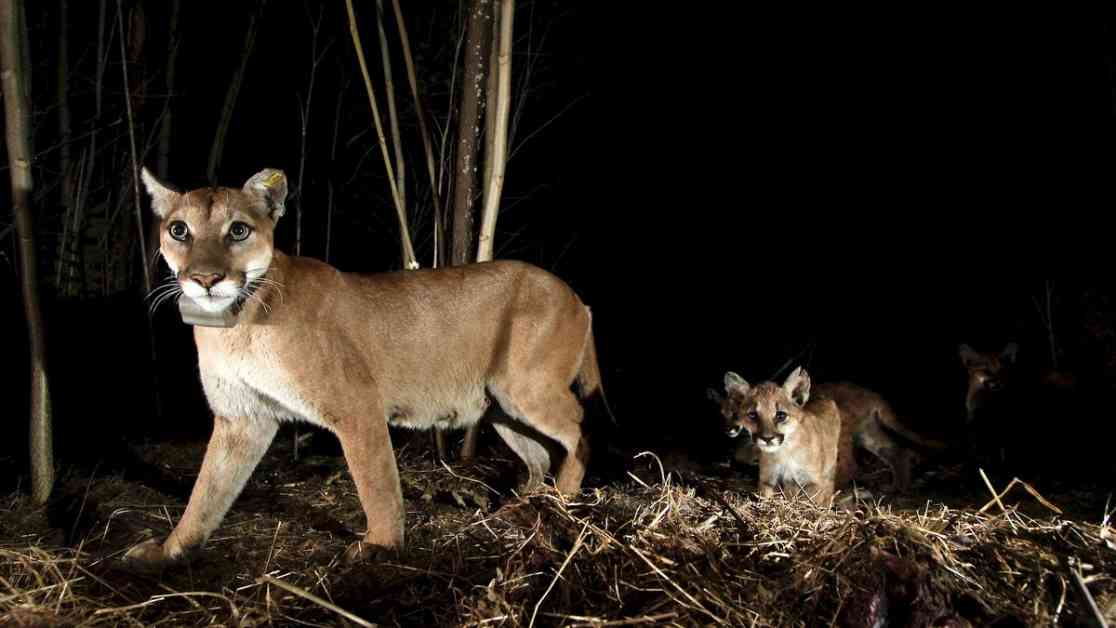Mountain lions in Greater Los Angeles are adjusting their behavior to avoid encountering humans who are increasingly using their territory for recreational activities. A recent study conducted by researchers from the University of California, Davis found that these majestic cats are now more active at night to steer clear of human presence during the day.
The study, which was published in the journal Biological Conservation, involved fitting GPS collars on 22 mountain lions living in and around the Santa Monica Mountains between 2011 and 2018. By comparing the mountain lions’ activity patterns with data on human recreational activities recorded on the platform Strava, the researchers discovered that the big cats are shifting their active hours from dawn to nighttime when human activity is minimal.
This adjustment in behavior is crucial for the coexistence of mountain lions and humans in shared natural spaces. Lead author of the study, Ellie Bolas, emphasized the importance of the flexibility exhibited by mountain lions in adapting to the presence of humans. She stated that these animals are making the effort to enable peaceful coexistence between the two species.
The findings of this study align with previous research indicating that many mammals worldwide are becoming more nocturnal in response to human disturbances. Predators like mountain lions are particularly adept at avoiding human contact, with studies showing that even the sound of human voices can deter these elusive cats.
Mountain lions in the Los Angeles area face a myriad of threats, including busy roads, wildfires, rodenticide exposure, genetic diversity issues, and habitat fragmentation. The researchers highlighted that recreational activities add to the stressors faced by these animals, potentially impacting their hunting and energy expenditure.
Despite these challenges, there is a sense of optimism in the researchers’ observations. The fact that mountain lions are willing to adjust their behavior to accommodate human activities indicates a level of adaptability that bodes well for their survival in the face of increasing urbanization.
Overall, the study underscores the importance of understanding and respecting the wildlife that shares our environment. By recognizing the efforts that mountain lions are making to coexist with humans, we can strive to minimize our impact on their natural behaviors and habitats. This mutual respect and awareness are essential for promoting harmony between humans and wildlife in shared spaces like the mountains of Greater Los Angeles.










